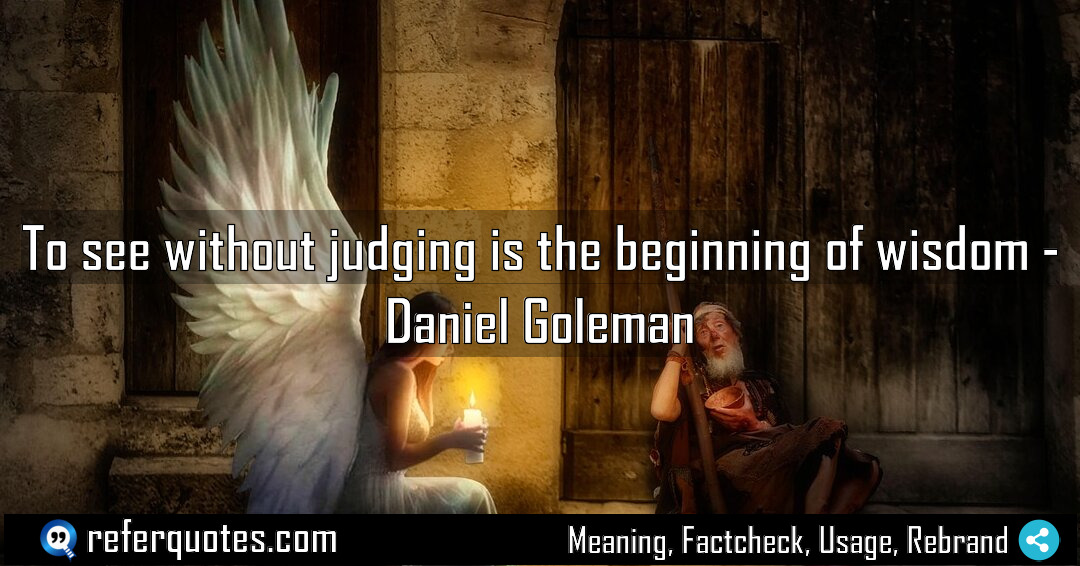You know, “To see without judging is the beginning of wisdom” is one of those lines that sounds simple but is incredibly hard to master. It’s about shifting from a reactive mind to an observant one, and honestly, it changes everything once you get it.
Share Image Quote:Table of Contents
Meaning
The core message is that true wisdom doesn’t start with having all the answers, but with the ability to simply observe reality—people, situations, yourself—without immediately slapping a label of “good” or “bad” on it.
Explanation
Let me break this down for you. Our brains are wired for efficiency, which means they love to judge. It’s a shortcut. Someone cuts you off in traffic, and instantly, they’re a jerk. You make a mistake, and instantly, you’re a failure. That judgment is like a cloud that completely obscures what’s actually happening. When Goleman talks about seeing without judging, he’s pointing to that moment of pure perception. It’s the space between the event and your reaction. And in that space… that’s where you find your freedom, your clarity, your real power to choose a response. It’s not about being passive; it’s about being precise. It’s the foundation of emotional intelligence.
Quote Summary
| Context | Attributes |
|---|---|
| Original Language | English (3668) |
| Category | Wisdom (385) |
| Topics | judgment (32), perception (39), wisdom general (18) |
| Literary Style | aphoristic (181) |
| Emotion / Mood | calm (491), wise (34) |
| Overall Quote Score | 86 (262) |
Origin & Factcheck
This quote comes directly from Daniel Goleman’s 1988 book, The Meditative Mind: The Varieties of Meditative Experience. You’ll sometimes see it misattributed to the Buddha or other spiritual figures, but its home is firmly in Goleman’s early work, where he was exploring the psychology behind meditation long before he became famous for Emotional Intelligence.
Attribution Summary
| Context | Attributes |
|---|---|
| Author | Daniel Goleman (125) |
| Source Type | Book (4032) |
| Source/Book Name | The Meditative Mind: The Varieties of Meditative Experience (60) |
| Origin Timeperiod | Modern (527) |
| Original Language | English (3668) |
| Authenticity | Verified (4032) |
Author Bio
Daniel Goleman is a psychologist and bestselling author whose journalism at The New York Times brought brain and behavior science to a wide audience. He earned a BA from Amherst and a PhD in psychology from Harvard, and studied in India on a Harvard fellowship. Goleman’s research and writing helped mainstream emotional intelligence, leadership competencies, attention, and contemplative science. He co-founded CASEL and a leading research consortium on EI at work. The Daniel Goleman book list includes Emotional Intelligence, Working with Emotional Intelligence, Primal Leadership, Social Intelligence, Focus, and Altered Traits.
| Official Website
Where is this quotation located?
| Quotation | To see without judging is the beginning of wisdom |
| Book Details | Publication Year/Date: 1977 (originally as The Varieties of Meditative Experience, revised 1988 as The Meditative Mind); ISBN: 9780874778335; Last Edition: Tarcher/Putnam 1988; Number of pages: 320. |
| Where is it? | Approximate page from 1988 edition, Chapter 6: The Mind in Balance |
